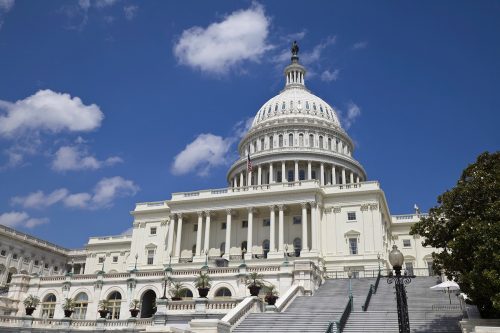How Not to BRIDGE SC’s Digital Divide
Palmetto Promise Institute recently joined a coalition of free-market organizations to write to the U.S. Congress in opposition to the BRIDGE Act, a flawed bill that purports to close the digital divide in rural communities.
As we wrote in April 2020, as the COVID pandemic began to unfold:
In a matter of days, broadband connectivity went from being a luxury to a virtual necessity. Millions of adults suddenly found themselves working from home and students moved to learning online practically overnight. For many individuals, the only way to see their doctor is through telemedicine. While some communities across America have the internet infrastructure to meet these new demands, many do not.
There is no question that bringing broadband connectivity to all South Carolinians is an important goal and should be a priority for policymakers at all levels of government.
The BRIDGE Act however fail to deliver broadband access to Palmetto State citizens who need it most. By taking an approach that prioritizes government control over public-private partnerships, the bill would waste taxpayer dollars on unnecessary government-run broadband networks in areas that already have connectivity.
Meanwhile, the need in rural communities is dire, and too often, well-meaning government programs miss the mark. Our northern neighbors in Caswell County, North Carolina learned this lesson the hard way as a promised grant never materialized. Now, months later, rural residents still await answers…and a reliable internet connection.
The bottom line: scarce resources must be used to empower businesses to expand into underserved areas and connect rural and low-income Americans to new or existing networks.
This is the fastest, most efficient way to truly bridge the digital divide while avoiding costly and wasteful endeavors to push government into the broadband business.
You can learn more about problems with the BRIDGE Act in the letter below, or by viewing the letter and our co-signers here.
Dear Senators,
We, the undersigned organizations representing millions of taxpayers and consumers across the nation, ask you to oppose the BRIDGE Act as introduced by Sens. Michael Bennet (D-Colo.), Rob Portman (R-Ohio), and Angus King (I-Maine). The bill would increase the size and scope of the federal government for broadband deployment, while limiting the constitutionally delegated power of states. Any lawmaker who values limited government and the free market should stand up against this proposal.
Internet speeds have been getting faster and more affordable across the nation. The surest way to risk stifling innovation and suppressing investment is with the rate regulations contained in this legislation. Forcing companies to provide a high-quality service for a government mandated low price will decrease supply, as it will become far less affordable for companies to do so. It will also disincentivize the type of risk that has led to some of the greatest innovations in the country. Rate regulation in this – or any other – industry ignores the fundamentals of the free market.
Whether or not localities may create their own government-run networks is an issue that should be left to state and municipal governments. However, the BRIDGE Act pre-empts state laws that prohibit municipal broadband networks. Because these networks represent locally built infrastructure, they are creatures of state, not federal law. Attempting to dictate local construction policies is nothing short of an unconstitutional overreach from Congress. The federal government should not interfere with local policy in this way.
While the intent to deliver high speed service to unserved areas to close the digital divide is a noble one, the BRIDGE Act would fail to meet even that need. The bill only actually mandates 50 percent of its disbursements be used for unserved areas. The rest is designated for areas that might have high speed internet, but whose upload and download speeds aren’t symmetrical. To give any sort of priority to these areas over the unserved ones is a gross oversight and will leave in place the same inequalities that already existed.
The bill will also create confusion for private networks that are not run by the government at the municipal level. It requires a standard of speed for all new networks, but allows states to put requirements on top of it. This will create a patchwork of regulations that will be impossible to comply with in any affordable manner. The irony is that the BRIDGE Act allows states to regulate national networks, but prohibits them from setting reasonable guidelines when it comes to networks built exclusively within their borders. It fundamentally misunderstands the Constitution and our federalist system.
For these reasons, and more, we urge you to oppose the BRIDGE Act. Closing the digital divide is a worthy goal and we hope you will pursue solutions that empower the free market to innovate and provide high-speed service.






